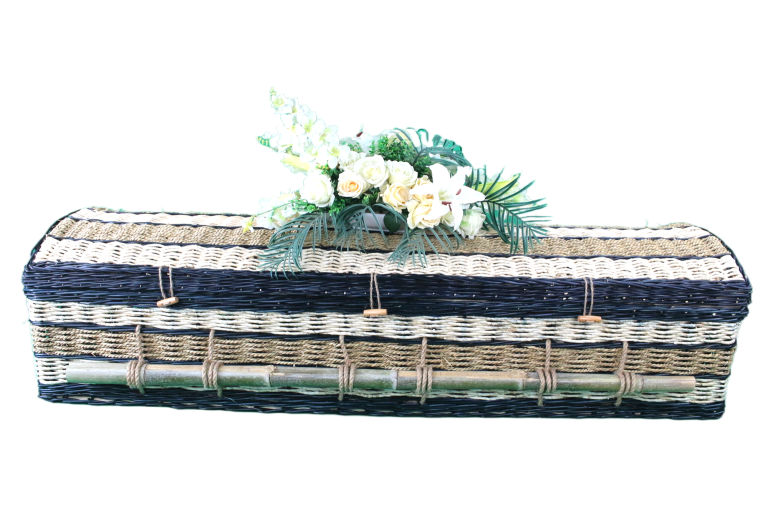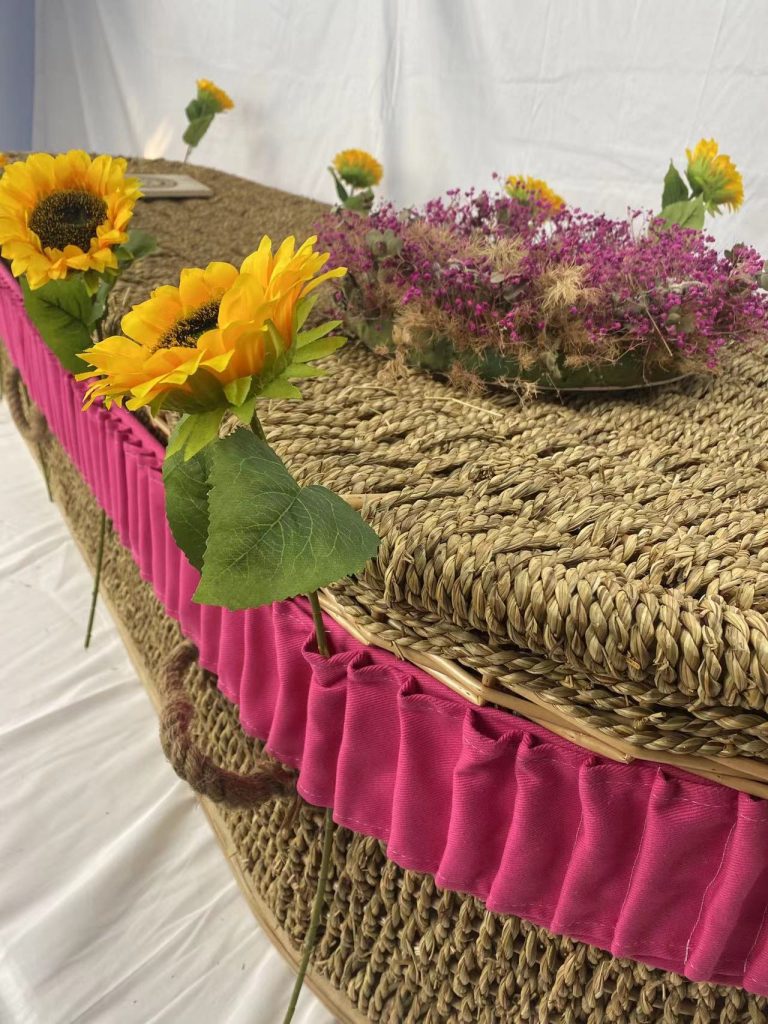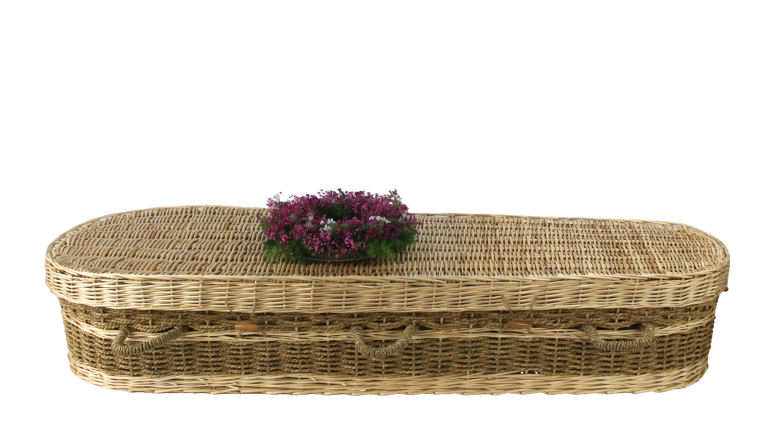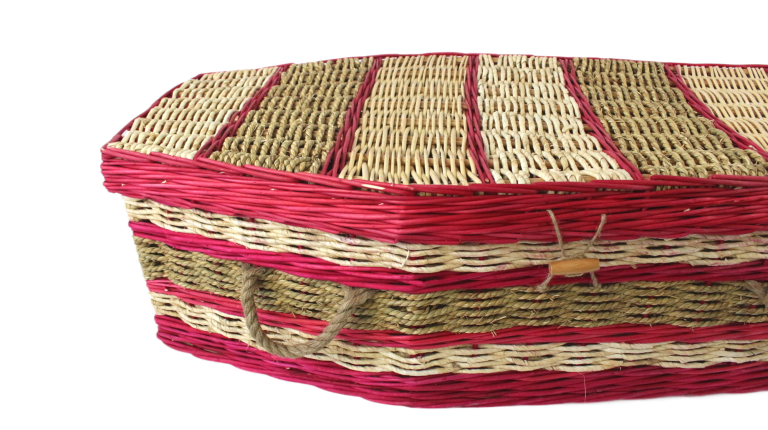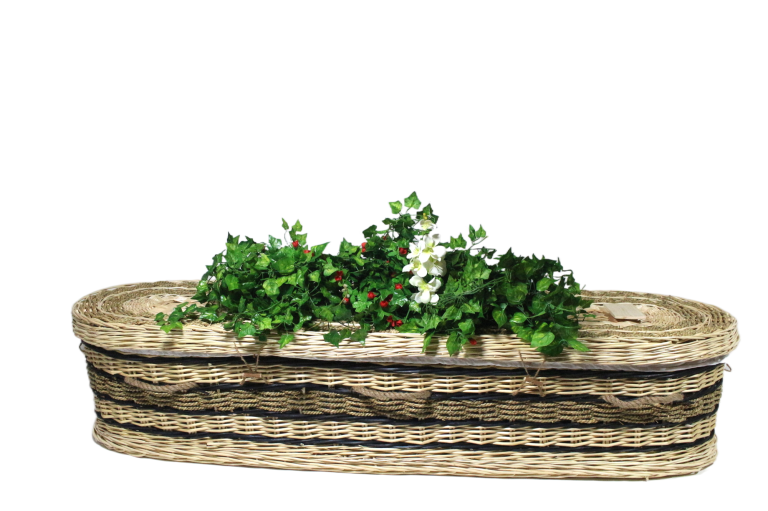In an era defined by escalating climate challenges and resource depletion, the funeral industry stands at a crossroads, poised to embrace innovations that align with global sustainability imperatives. Woven funeral products, particularly biodegradable coffins crafted from natural materials like willow and bamboo, represent a transformative shift toward eco-conscious end-of-life practices. These products not only minimize environmental harm but also actively support the United Nations Sustainable Development Goals (SDGs), including SDG 13: Climate Action and SDG 12: Responsible Consumption and Production. By integrating traditional craftsmanship with modern ecological principles, woven coffins offer long-term value in fostering planetary health, reducing carbon footprints, and promoting circular economies.
At the heart of this movement are source factories in Linshu County, Linyi, Shandong Province, China—renowned as the “willow town” for its centuries-old weaving heritage.
Here, artisans harness sustainably sourced willow and bamboo, fast-growing renewables that require minimal water and no pesticides, to produce coffins that decompose naturally within months, enriching soil without leaving toxic residues.
This region, home to specialized factories like those in Phoenix Nest coffins, exemplifies responsible production by prioritizing fair trade, ethical sourcing, and low-energy manufacturing processes.
Linshu’s output powers a global supply chain, exporting to markets demanding green alternatives, thereby demonstrating how localized expertise can drive international sustainability agendas.
Linking directly to SDG 13: Climate Action, woven coffins mitigate greenhouse gas emissions associated with traditional burials. Conventional coffins, often made from hardwood or metal, contribute to deforestation and high carbon outputs through resource-intensive production and slow decomposition.
In contrast, biodegradable woven options sequester carbon during material growth—bamboo, for instance, absorbs CO2 at rates up to four times faster than trees—and break down without releasing pollutants, aiding in climate resilience.
Studies highlight that natural burials, facilitated by such products, enhance soil ecosystem services, including biodiversity restoration and carbon storage, potentially offsetting emissions equivalent to thousands of vehicle miles per burial.
For policymakers, this translates to scalable solutions: incentivizing green funerals through regulations could accelerate net-zero targets, as seen in emerging policies favoring biodegradable materials in Europe and North America.
Equally vital is the alignment with SDG 12: Responsible Consumption and Production. woven coffins embody circularity by utilizing renewable resources that regenerate quickly, reducing waste and promoting resource efficiency.
In Linshu’s factories, production emphasizes zero-waste techniques, where offcuts are repurposed, and the entire lifecycle—from harvesting to decomposition—minimizes ecological footprints.
This model encourages consumers to rethink funeral choices, shifting from resource-heavy traditions to sustainable ones that preserve habitats and support local economies. For environmental organizations, partnering with such factories could amplify advocacy, highlighting how everyday decisions contribute to global goals like halting biodiversity loss (SDG 15).
The long-term value of woven funeral products extends beyond immediate environmental gains. By normalizing eco-burials, they cultivate a culture of sustainability, influencing future generations and integrating death care into broader development frameworks. In resource-scarce regions, these affordable, locally produced items democratize access to green options, fostering equity in sustainable practices. Researchers can leverage data from Linshu’s operations to model impacts, informing evidence-based policies that integrate funeral innovations into national SDG strategies.
As we envision a greener tomorrow, woven coffins from China’s Linshu factories serve as a beacon of hope. Policymakers, environmental leaders, and researchers must champion these solutions, enacting supportive frameworks to scale their adoption. Through collective action, we can transform end-of-life rituals into catalysts for enduring planetary stewardship, ensuring that our final acts honor not just the departed, but the Earth we leave behind.
We are a factory supporting eco friendly green funeral(natural willow coffins\bamboo caskets and so on) .. for detail please contact us www.phoenixnestcoffins.com;
Phoenix Nest ( Shandong ) Crafts Co.,Ltd.
Whatsapp: +86-18265103836 (Whatsapp & Wechat & Tel)
Email: jason@phoenxinestcoffin.cn #willow coffin#greencoffins#bamboocaskets#urns#naturalcoffins#chinafactory#scattertube#naturalburial#FuneralSupplies#cross#flowerbands#shrouds #carrierfunera Linshu factories, the heart of woven coffin supply chain, employ skilled artisans who weave each casket by hand—preserving a craft passed down through generations while meeting global quality standards#phoenixnestcoffins #crematorium#uniqueurn #keepsakes#keepsake@everyone@followers
Linshu factories, the heart of woven coffin supply chain, employ skilled artisans who weave each casket by hand—preserving a craft passed down through generations while meeting global quality standards#phoenixnestcoffins #crematorium#uniqueurn #keepsakes#keepsake@everyone@followers


